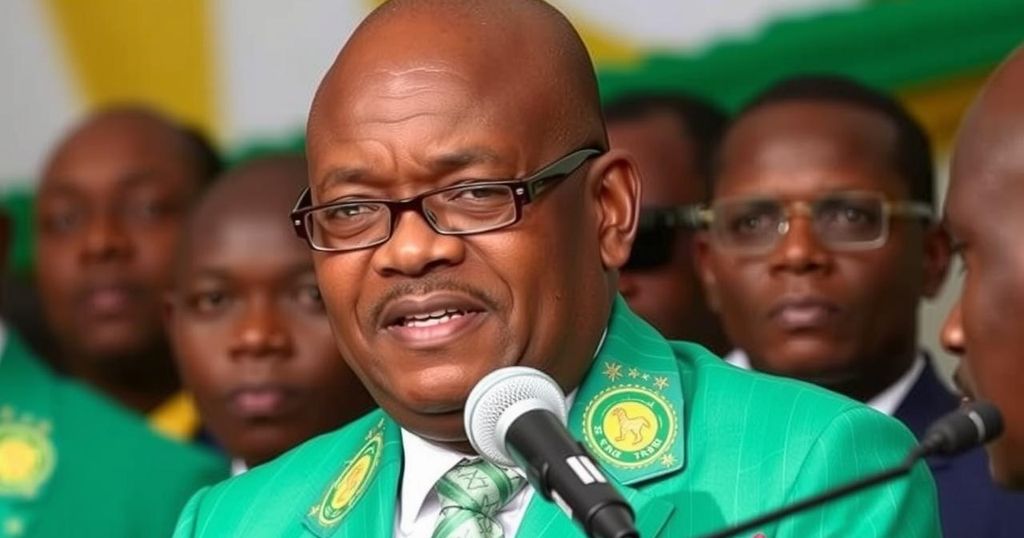Ghana’s Ruling Party Candidate Concedes Defeat Amid Economic Discontent

Vice President Mahamudu Bawumia conceded defeat in Ghana’s presidential election, acknowledging widespread dissatisfaction with the economy. Former president John Mahama of the NDC emerged victorious, winning approximately 56.3% of the vote. This election reflected the electorate’s pressing call for change amidst economic challenges, including inflation and a debt crisis.
In a significant political shift, Vice President Mahamudu Bawumia, representing Ghana’s ruling New Patriotic Party (NPP), acknowledged defeat in the recent presidential election. Conducted on Saturday, this election culminated in a challenging outcome for the NPP, which has governed for two consecutive terms under President Nana Akufo-Addo amidst growing economic hardship characterized by high inflation and a debt crisis. Bawumia expressed respect for the voters’ decision during a press conference, emphasizing the electorate’s desire for change. He confirmed his call to congratulate his opponent, former president John Mahama of the National Democratic Congress (NDC), who celebrated his victory amidst jubilant supporters in Accra. According to Bawumia’s internal tallies, Mahama secured a decisive victory, along with the NDC’s dominance in parliamentary elections, indicating a clear mandate for change in Ghanaian politics. The election was heavily influenced by the country’s economic difficulties, including a recent bailout by the International Monetary Fund. NDC spokesperson Sammy Gyamfi indicated that preliminary results showed Mahama winning approximately 56.3% of the votes compared to Bawumia’s 41.3%, further underscoring the electorate’s call for a political transformation. Historically, Ghana’s political landscape has been characterized by alternating power between the NPP and NDC since the reintroduction of multiparty democracy in 1992. Despite the NPP’s ambition for an unprecedented third term under the slogan “Break the 8,” Bawumia faced significant challenges due to ongoing criticisms regarding the administration’s economic management, thus paving the way for Mahama’s return to power. Although inflation rates had decreased from over 50% to around 23%, the economic struggles remained a pertinent issue for voters, leading to a momentous election outcome that has implications for Ghana’s future governance.
The recent presidential election in Ghana is a culmination of widespread dissatisfaction over the economic situation in the country, particularly during the two terms of the New Patriotic Party under President Nana Akufo-Addo. This election represented a pivotal moment for political dynamics in Ghana, as it follows significant economic challenges, including inflation and debt default, along with a bailout from the International Monetary Fund. The political rivalry between the NPP and NDC—a pattern established since the return to multiparty politics in 1992—serves as a backdrop for the electoral outcomes as both parties vie for public support, highlighting the electorate’s priorities amidst economic turmoil.
The recent election in Ghana marks a decisive shift in the country’s political landscape, centered around the electorate’s desire for change amid economic adversity. Vice President Mahamudu Bawumia’s concession reflects a recognition of the challenges faced by the ruling party, while former President John Mahama’s victory signals a potential resurgence for the NDC. As Ghana seeks stability and growth following economic hardships, the implications of this electoral result are profound, setting the stage for future governance and potential reforms needed to address the pressing issues faced by the nation.
Original Source: www.voanews.com







